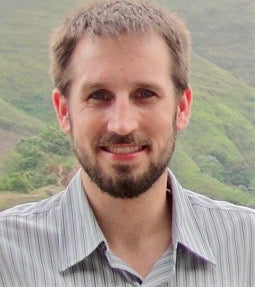KINGSTON, R.I. – Sept. 23, 2020 – Supreme Court Justice Ruth Bader Ginsberg’s death last week came just 46 days before the presidential election, the closest a high court opening has occurred in the run up to an election in more than 150 years.
But while the process of approving a new justice has averaged 68 days since 1975, there is more than enough time for President Donald Trump to nominate a replacement and have the Senate confirm the nominee, says Christopher Parker, assistant professor of political science at the University of Rhode Island and an expert on judicial politics.
“Confirmations typically take a long time, though with a majority in the Senate and the removal of the filibuster for Supreme Court confirmation votes, the Republicans have plenty of time to fast-track a nominee through the process if they want to,” says Parker. “They can’t afford more than three defections from their caucus, however.”
The process is pretty much straight forward with the president selecting a nominee and the nominee being approved or rejected by a full floor vote of the Senate, typically after the candidate is interviewed by the Senate Judiciary Committee. But others usually have a say in the nominee, Parker says. Presidents usually consult with political allies and key senators to help ensure the nominee’s confirmation, and typically choose someone who appeals to at least part of their political base.
“Democratic presidential candidate Joe Biden has pledged to nominate an African-American woman to the court, and Trump has used judicial nominees to show his commitment to his evangelical base,” says Parker. “Similarly, Nixon appointed judges from the South as part of his ‘Southern Strategy’ to attract disaffected Southern Democrats to the Republican Party.”
Presidents also have obviously handled an opening on the high court that comes before an election very differently.
In 1864, the last time a Supreme Court seat became open closer to the election than Ginsburg’s seat, President Abraham Lincoln waited until after winning the November election before nominating a successor to Chief Justice Roger Taney, who had died that October. Salmon P. Chase was approved that December.
But it was much different in 1841. Democrats forced through the nomination of Peter Daniel after the death of Justice Philip Barbour with only a week left in President Martin Van Buren’s term. “Van Buren had lost the 1840 election to William Henry Harrison,” Parker says. “But Van Buren and the lame duck Senate controlled by Democrats were able to confirm Daniel to the open seat in just four days – only two days before Harrison was inaugurated.”
Political wrangling – and factious debate – have seemingly become a fixture of the nomination process in the current political environment.
“Supreme Court nominations have become more contentious in modern times due to the court playing a bigger role in our political system and because of increased polarization,” he says. “Throughout the 1800s the court did not have the same prestige as it does now, and so while there were contentious nominations, the court as a whole did not garner the same attention.”
The stakes have increased as the court’s role in settling contentious issues has grown with the inability of a deadlocked Congress to pass legislation, he adds. Also, recent vacancies have had the ability to tip the ideological balance on the court, escalating the battle over open seats. One example: The death of Justice Antonin Scalia in 2016 – 269 days before the election – when a Republican-led Senate blocked Democrat Barack Obama’s nomination of Merrick Garland.
“The passing of Ruth Bader Ginsburg gives the opportunity for the Republicans to cement a solid conservative majority for decades, as they replace a liberal icon with a young conservative jurist,” says Parker. “This raises the stakes for any confirmation battles.”
Parker received his doctorate from Stony Brook University, specializing in judicial politics and Supreme Court decision making. His subsequent research has focused on judicial behavior and public opinion about the high court.
Among other issues, Parker can speak to the politics of the confirmation process and how the replacement of Justice Ginsburg will likely affect how the court decides cases going forward. He can also address high court precedents in particular areas of the law, the factors that influence court opinions or if the court will hear a case, and how the public and other government branches respond to the court’s decisions.
To schedule an interview contact: Tony LaRoche, anthony_laroche@uri.edu, 401-874-4894.

